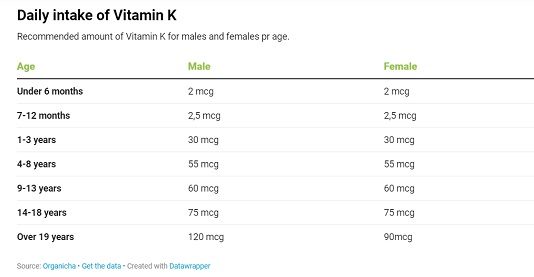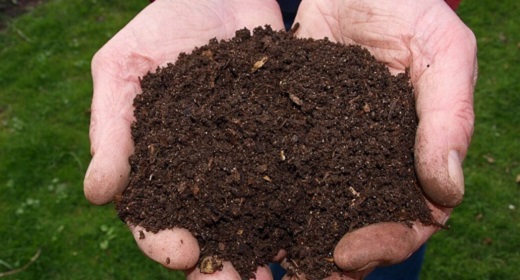by Dr. Alex Kolb: Vitamin K is a fat-soluble vitamin that is naturally occurring and essential for the human body…
Remember that term “homeostasis”…? Well, this vitamin is necessary for the body to maintain equilibrium and function properly. Actually, vitamin K is an umbrella term used for the whole vitamin K family, as there is more than one.
Adequate daily intake is necessary for a multitude of cellular processes that occur in our bodies without us knowing it. Most importantly, it is a major player in the way our blood clots, scientifically known as the clotting cascade. Also, it plays a role in bone health as well as heart health.
By now, you must be thinking: “is vitamin K supplementation right for me?” With that being said, let us dive into the do’s and don’ts of the vitamin K family since supplementation may be beneficial for some but not for others. As always, please consult with your doctor before starting supplementation with any vitamin, mineral, or herb to make sure it is right for you.
The Vitamin K Family – What does Vitamin K1 & K2 do?
Now, let’s meet the vitamin K family. As mentioned above, vitamin K is a fat-soluble vitamin that is present naturally in certain foods and produced by certain bacteria. This family is made up of two major components. First, there is vitamin K1, which is scientifically known as phylloquinone. Secondly, there is vitamin K2, which is scientifically known as a series of menaquinones (MK-4 to MK-13).
Without all the scientific jib-jab, vitamin K1 is primarily sourced in vibrantly green vegetables. Yes, think of the term “leafy greens.” This form of vitamin K is the main dietary source. Vitamin K2 is primarily produced by bacteria, specifically by the normal flora (good bacteria) found in the human gut.
Interesting enough, vitamin “K” got its name from the word “Coagulation”, which is German in origin. This word has a general meaning of “the ability to clot.” Hence, it is a significant factor in the way our blood clots, in addition to other physiological functions. Many clotting factors are vitamin K dependent. Meaning, a lack of this vitamin will result in delayed clotting. There are other proteins and elements in the body that depend on vitamin K for proper functionality.
To mention another, osteocalcin is a hormone produced by the cells that help build bone, known as osteoblasts. This hormone helps bind calcium and support bone health by aiding in bone mineralization. MGP is another vitamin K-dependent protein that can be found in the muscles, cartilage, and bone. This protein is involved in calcium metabolism in blood vessels. It helps prevent the build-up of calcium deposits in arteries and blood vessels, which supports heart health.
Although vitamin K does most of its work at the molecular level, you can see it is important in moderation to facilitate critical processes that take place in our bodies. Many compounds rely on vitamin K to fuel their production and activity. Just like a car with little to no gasoline, the factors mentioned above can not function correctly or at their best without vitamin K. Now, you would not want to go on a road trip in your vehicle without any gasoline, would you…?
How To Stay Healthy With K – Vitamin K1 & K2 Benefits
As mentioned above, adequate amounts of vitamin K are essential to maintain many cellular processes’ proper functionality. Obtaining the right amount of this vitamin through your diet or supplementation is essential. Amongst others, we need vitamin K to maintain bone health, heart health, and circulation health. The health of our bones, heart, and circulation is quite essential. So, how does vitamin K keep these three up to par?
Bone Health – Osteoporosis
Osteoporosis is a prevalent condition that affects mostly the elderly population. Let’s break down this scientific word to learn more. While “osteo” means related to bone, “porosis” means porous. This condition occurs when your bones become brittle and full of tiny holes, like swiss cheese. Osteoporosis is caused by a long term lack of calcium and vitamin d, which are essential building blocks to maintaining bone mass and healthy formation. So how does vitamin K fit into the equation?
Vitamin K is a cofactor needed by hormones (like osteocalcin) produced by bone proteins to bind calcium and keep bones healthy. It has been studied and hypothesized to increase bone mineral density and decrease fracture rate. Bone mineral density (BMD) is a measure of how dense and concentrated your bones are with essential minerals, like calcium. A high bone mineral density suggests healthy bones that are strong and nonporous. A low mineral density suggests fragile bones with porous formation, which increases one’s risk of a fracture.
Several studies have been conducted examining the effects of vitamin K supplementation on bone mineral density and fracture rate. The majority of the studies originated in Japan, with the study population being post-menopausal women. Post-menopausal women were the main study group since this population is at high risk for osteoporosis or osteopenia. The majority of the studies suggest an improvement in bone mineral density to some degree in addition to a reduction in fracture rates, including vertebral, non-vertebral, and hip. Vitamin K2 (MK-4) was mostly used for supplementation in these trials.
In certain parts of Asia and especially Japan, a therapeutic prescription dose of 45mg of Vitamin K2 supplement (MK-4) daily has been used for osteoporosis. However, other countries like the United States do not make these specific health claims, although over the counter supplements are available.
Heart Health – Coronary Artery Disease
It is important to keep your heart healthy by helping your blood vessels and arteries stay clean and free of build-up. Think of a hose that you use to draw water from a spigot. If the hose is clean and without any debris formation on the inside lining, water will run freely. On the other hand, if debris has built up or small rocks get lodged inside the hose, water will only trickle slowly or stop flowing altogether. This same scenario is true in regards to your blood vessels and arteries. Vitamin K is essential for certain proteins (like MGP) to reduce calcium’s ability to create deposits in our vasculature. By doing so, your blood vessels and arteries (or hoses) can stay clear for blood to flow freely throughout our bodies. This makes it easier for the heart to do its job with less resistance.
Circulation Health – Coagulation and Clotting
Our body’s ability to be able to clot blood is a defense mechanism and wound healing function. Imagine if you got a cut on your hand, and your body could not stop the bleeding.
Even the smallest of abrasions would be life-threatening. Many clotting factors (II, VII, IX, X, protein S, protein C) depend on vitamin K to function rapidly and properly to stop bleeding when it occurs. However, many people may be on anticoagulation therapy that thins the blood and prolongs clotting time to decrease a heart attack or stroke occurrence. Individuals with such conditions must maintain stable levels of both vitamin K and their anticoagulation medication. This is considered a balancing act for such individuals. This population should never begin supplementation with any form of vitamin K without consulting with their prescriber first.
Other Conditions
Vitamin K has been researched in a few other conditions, although limited data is available. It has been studied in arthritis, and symptom improvement has been suggested. It has also been reported to benefit the prevention of calcium build-up in the urinary tract. The build-up of calcium in the urinary tract can lead to unwanted and painful kidney stones. Its use in conditions like diabetes, cancer, and cognition impairment has also been studied. However, more data and research is needed as the results are inconclusive.
Where Can You Find Vitamin K?
Vitamin K can be found in a plethora of foods, especially leafy green vegetables. The majority of foods contain vitamin K1. Vitamin K2 foods are typically fermented. Either way, here is a list of 10 common foods that are high in this vitamin:
- Collard greens
- Kale
- Broccoli
- Edamame
- Soybeans
- Natto
- Turnip greens
- Pomegranate
- Cheese
- Spinach
Here is a breakdown by gender and age on the adequate intake amount needed to maintain a healthy and well-balanced diet:
Besides, females that are pregnant or lactating require an adequate daily intake of 75mcg (14-18 years old) or 90mcg (>19 years old), depending on their age group.
Vitamin K is available in many multivitamins or by itself as a supplement. It is available in multiple forms, depending on your country of residence. However, it is usually known as vitamin K1 or as MK-4 or MK-7 in vitamin K2 form. Although there is no supportive evidence to suggest one being better than the other, it comes down to pricing and personal preference, which may be the right fit for you.
What Does Vitamin K Deficiency Look and Feel Like?
Vitamin K deficiency is not a prevalent condition; however, it can occur if the average daily amount is not consumed for a prolonged period. The classic signs of deficiency include a long time for blood to clot, resulting in bleeding or excessive blood loss. Individuals at the highest risk for vitamin K deficiency or inadequacy are newborns and those suffering from gastrointestinal (GI) disorders.
Infants are prone to inadequacy since they have not yet obtained a balanced diet and since their guts are in development. Since their stomach is still developing, they have not produced a healthy flora environment that naturally makes vitamin K. Typically, newborns will receive vitamin K at birth to prevent deficiency from occurring.
Like irritable bowel syndrome, ulcerative colitis, or celiac disease, those with GI disorders may have absorption issues of such vitamins like K, amongst others. In this case, monitoring by a healthcare professional may be warranted, and supplementation may be necessary.
Important To Note: Vitamin K Interactions
It is important to note that supplementation with vitamin K can interact with certain medications. These interactions are important to be conscious of as they can cause adverse effects or even be life-threatening. Such interactions can result in an increased risk of bleeding or hemorrhage and depletion in vitamin k absorption. If you take any of the following medications, you must discuss it with your doctor before initiating supplementation:
- Warfarin
- Other anticoagulants
- Antibiotics
- Bile acid sequestrants
- Orlistat
Let us Wrap It Up
Just like the other essential vitamins, an adequate amount of vitamin K should be consumed through a balanced diet or supplementation, depending on your specific situation. This vitamin is unique as it is a substance needed by numerous proteins and factors in the body to perform its duties. From coagulation to bone health, vitamin K is a popular compound that keeps us busy in our bodies. Remember, you should never deplete your vehicle of gasoline and expect it to function properly. The same goes for vitamin K and your body. Although deficiency is rare, it is important to know the effects, especially if you have an underlying GI disorder that results in malabsorption.
Do not forget to talk to your doctor before changing your diet or initiating supplementation, as it is not right for everyone. Unfortunately, supplementation with vitamin K is not a “one size fits all.” Some people may want to avoid anything above the standard daily intake value. This includes individuals taking certain medications in addition to those maintaining that “balancing act” to prevent worsening of certain conditions, like heart attack or stroke. Supplementation with vitamin K has numerous health-related benefits. However, such benefits must outweigh any potential risks.










































